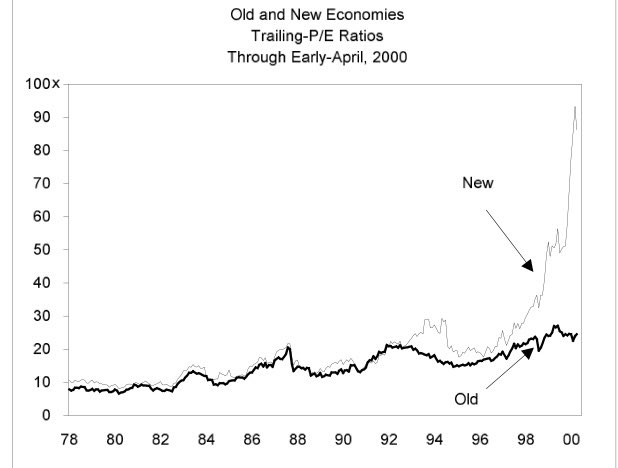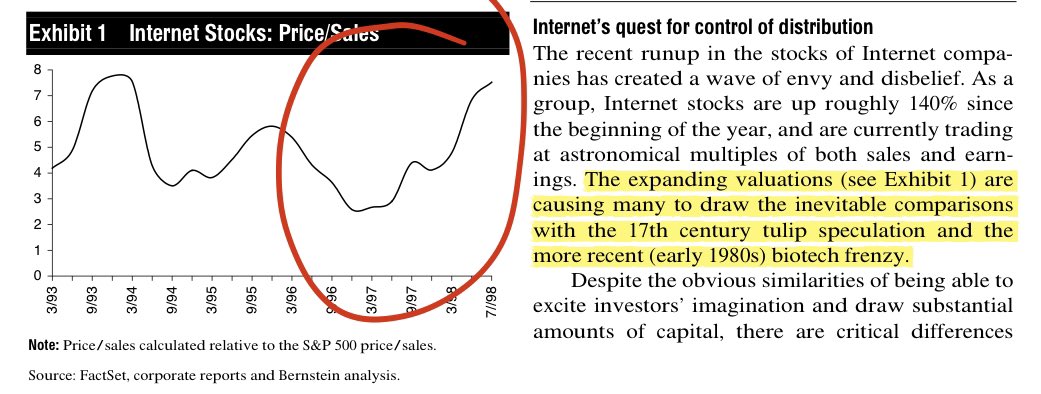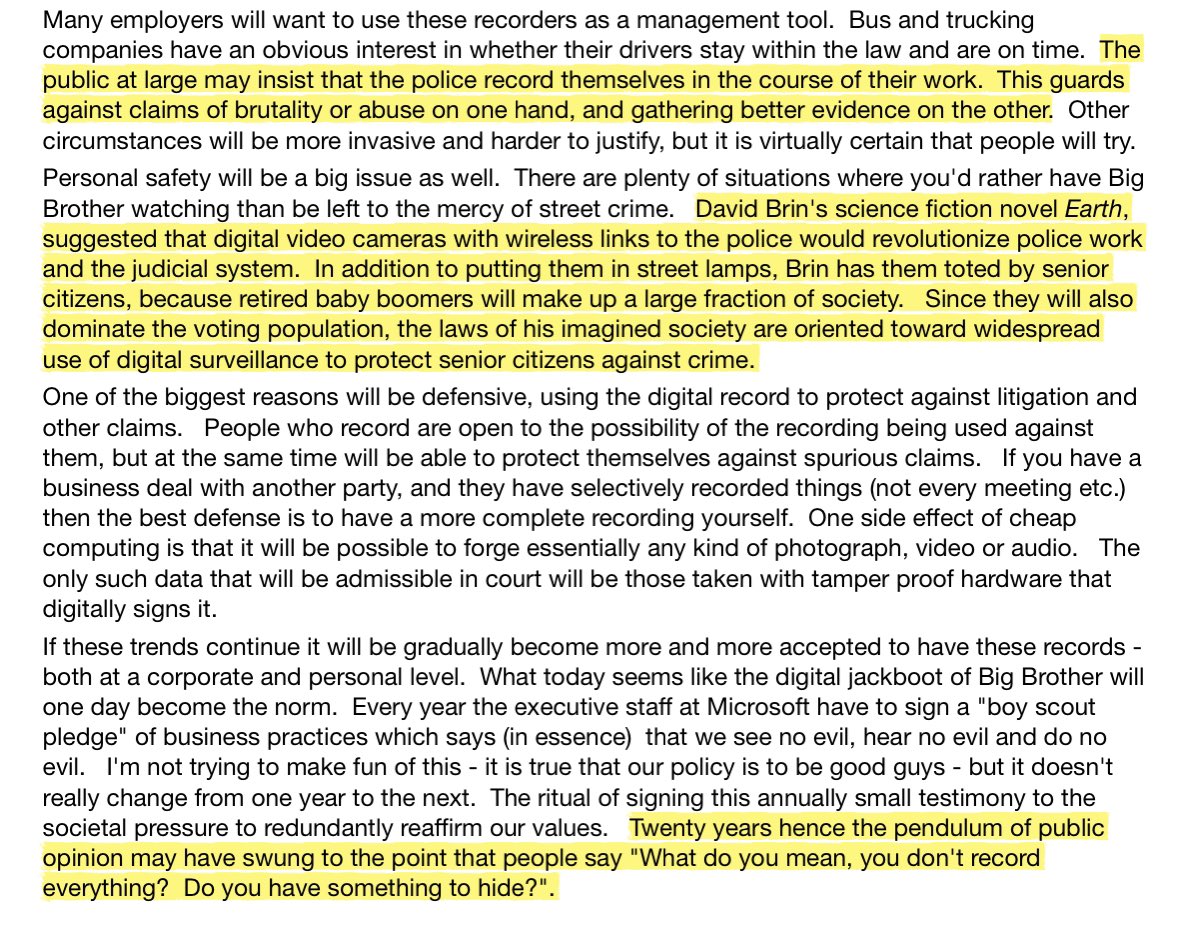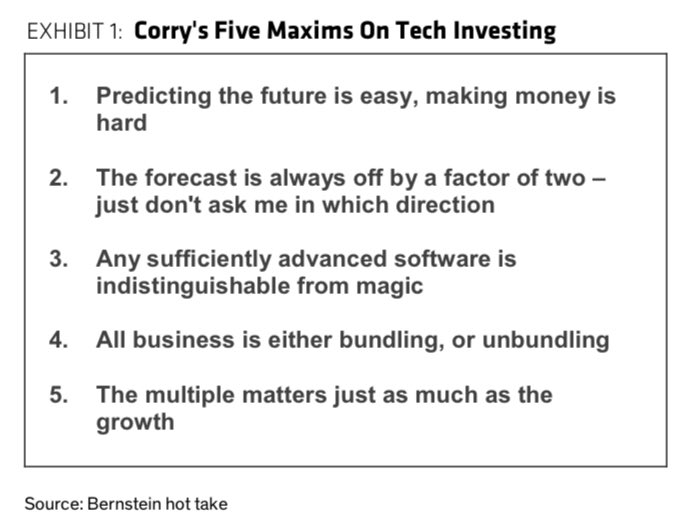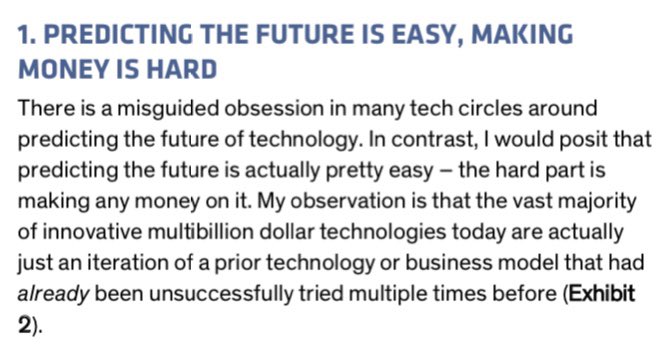1/ A fun piece of tech history that I came across today: an online copy of Microsoft's 1986 IPO prospectus. At just 52 pages, a light piece of weekend reading!
Some takeaways from my skim -
lannigan.org/pdf/Microsoft_…
Some takeaways from my skim -
lannigan.org/pdf/Microsoft_…

2/ No surprise, valuations were still in a whole other world back then
Microsoft IPOed with $140M in 1985 revenues (growing 40% per annum), and 30% operating margins
Yet the IPO market cap was $520M... aka ~3x forward sales, or ~15x forward *earnings*
Microsoft IPOed with $140M in 1985 revenues (growing 40% per annum), and 30% operating margins
Yet the IPO market cap was $520M... aka ~3x forward sales, or ~15x forward *earnings*

3/ Microsoft's 1985 revenues: 54% systems, 38% applications, and 8% hardware & books
Here's a 1-paragraph mention of Windows, a recent GUI "extension of MS-DOS"
"It is too early in the life of Windows to determine what level of acceptance it will attain in the marketplace"
Here's a 1-paragraph mention of Windows, a recent GUI "extension of MS-DOS"
"It is too early in the life of Windows to determine what level of acceptance it will attain in the marketplace"

4/ A tidbit on the ongoing lawsuit by Seattle Computer Products over the invention of MS-DOS (which Bill Gates famously bought and flipped from SCP to IBM in 6 months in 1981)
The potential judgment: 10%+ of Microsoft's market cap and the loss of their biggest revenue line item
The potential judgment: 10%+ of Microsoft's market cap and the loss of their biggest revenue line item
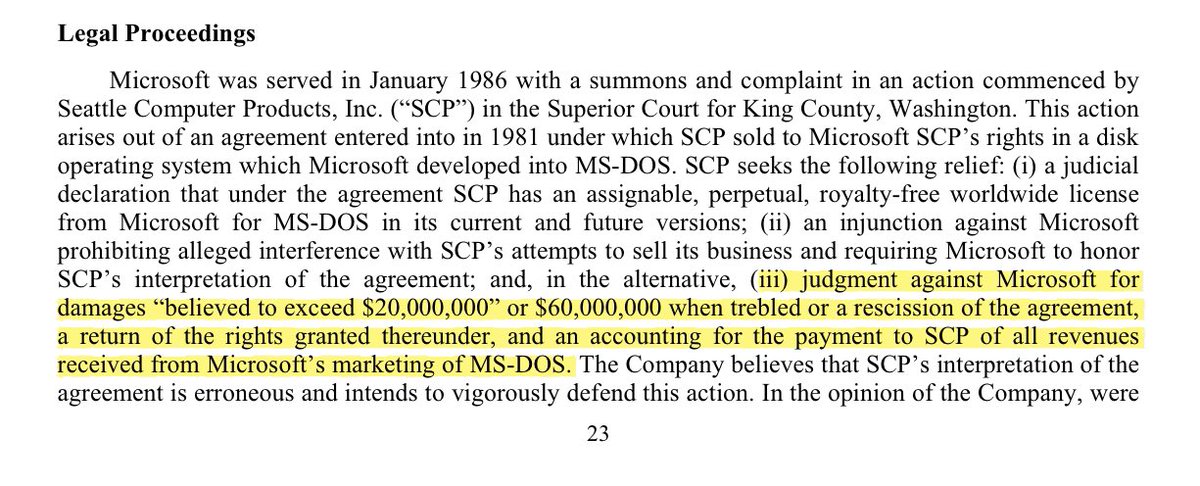
5/ Capital-light scaling - Incredibly, Bill Gates and Paul Allen would personally still own 70% of Microsoft post-IPO. No dilution here... 

• • •
Missing some Tweet in this thread? You can try to
force a refresh

